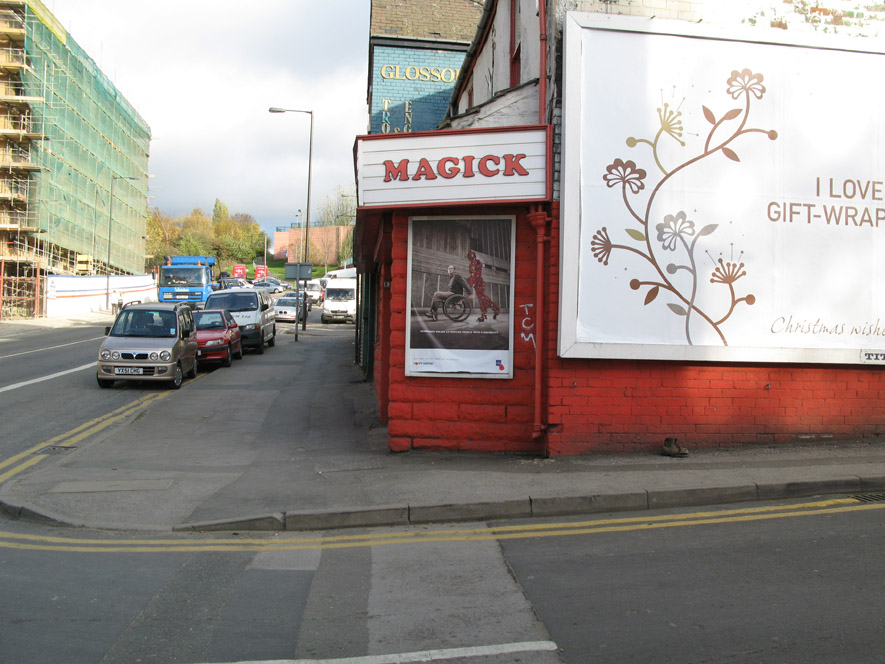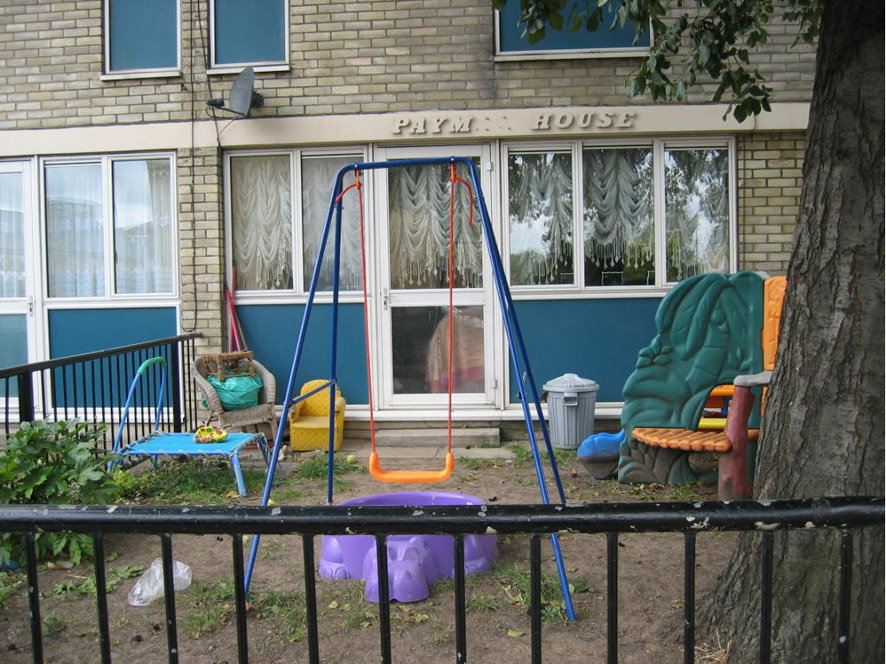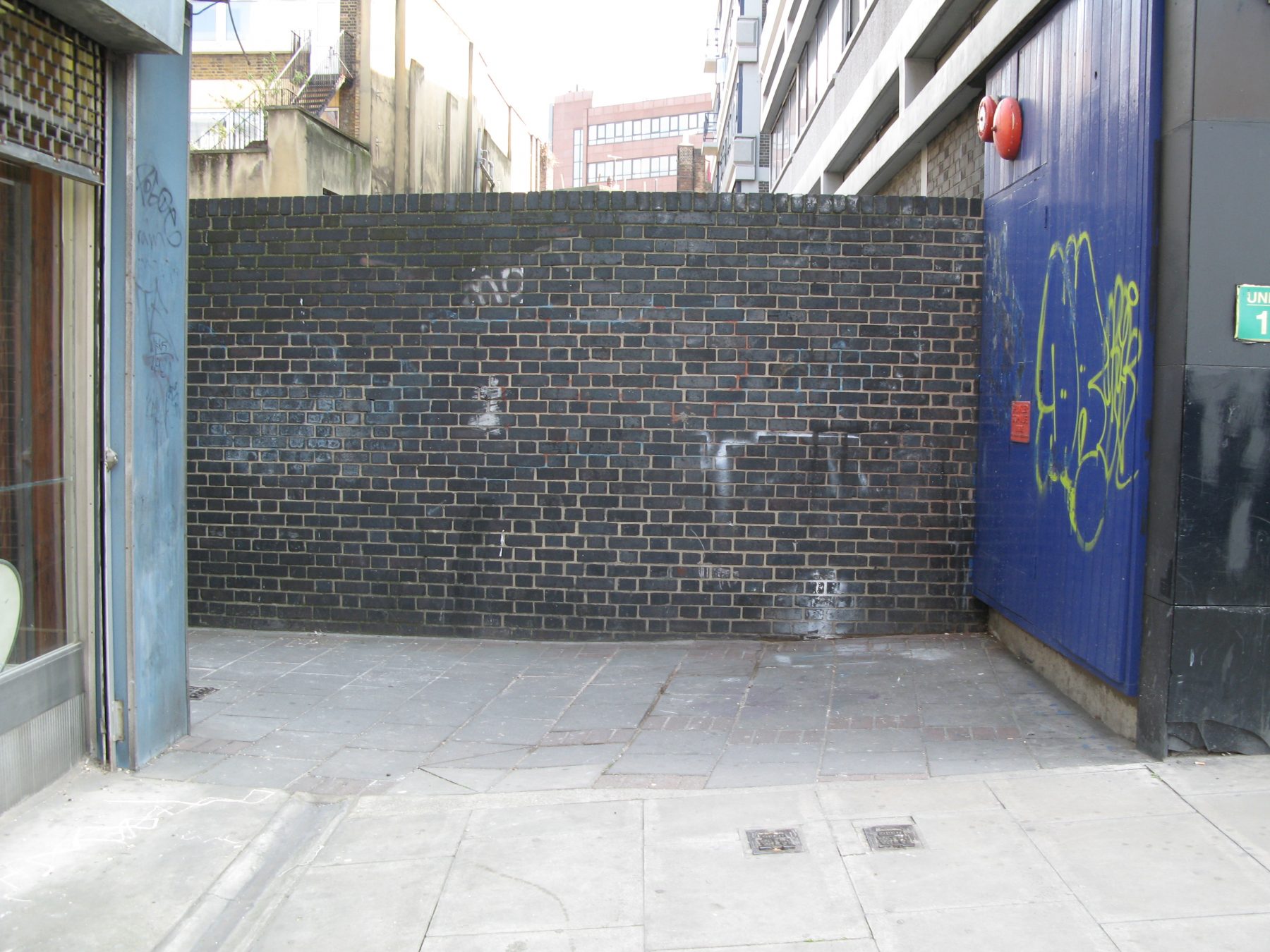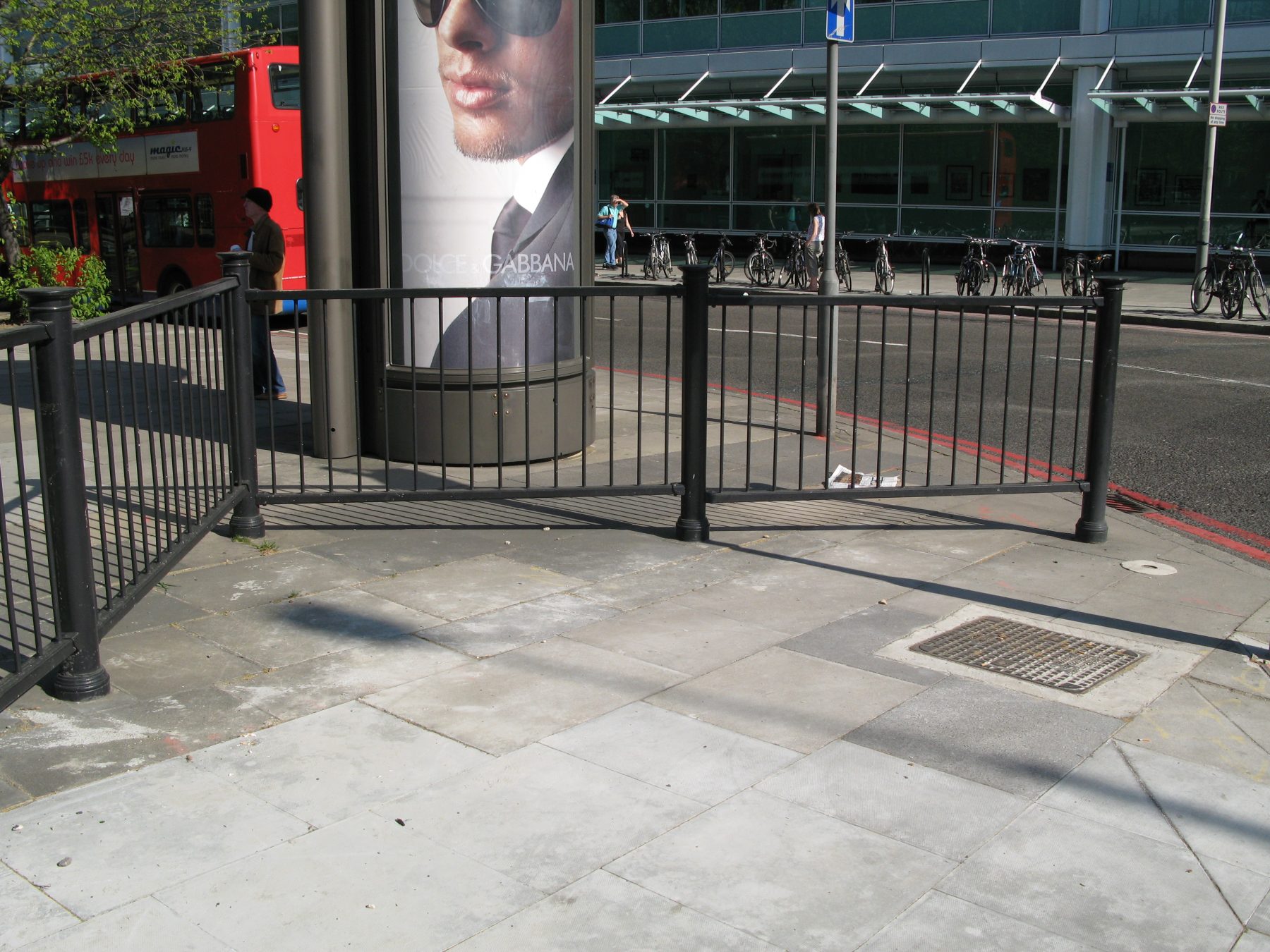The Last Round of Changes
Artist book, 2008. Commissioned by Gothenburg Kunsthall. Text by Will Bradley.

I.
If things were different, if tomorrow was not the certain falling into place of all carefully fashioned pieces that today, once again, were lifted up and set into position by the perceptual spinning of this overbalancing wheel, if the raising of the curtain, the expectant applause of the crowd, the first dazzle of the lights did not already contain the silence that follows, the empty theatre, the darkened streets, then you and I might wake tomorrow not from a brief and uneasy sleep but from ourselves, from the world as it is, from the inevitable courtyards and doorways, the distant hillsides, the beauty of autumn, the aesthetics of decay, the rusted chain-link fence hanging from half-fallen steel posts, the suburban neon, the cathedral bells, the power of knowledge, the beauty of data, the X-ray machine, the high-speed train, the spatio-temporal fix. The concrete arcading of a small-town shopping centre shelters us as we wait for the performance to begin. Empty paper cans and paper bags blow across the rain-spattered paving.II.
Make no mistake. The audience has not come here for you. They don’t gather to hear what you have to tell them, to marvel at the clarity of your vision. Like the city, they survive by renewing themselves, knowing that to refuse change is to be forever altered, to decay. To repair the walls of the cathedral. The masons gently lower the crumbling soot-blackened medieval stones to the frozen ground and haul them to an unheated warehouse near the harbour. Here they are remade from freshly-quarried stone-their imperfections and vagueness of shape, the effects of centuries of weathering, frost action, fungal impregnation, negated – and the new carvings replace the old blocks in the once ancient walls. Meanwhile, in the vast concrete darkness of the warehouse, the old blocks are stacked together and the cathedral rises anew.III.
If you were to look for us here, you might find little trace of our lives. Some scattered cardboard or paper, an empty bottle, perhaps an old coat, a heap of rags amongst the ryegrass, the ragwort and the fireweed. Butterfly bushes cling to the brickwork high above the ground, a scrub of birch and sallow sprouts in the margins. The wind eddies around the towers and overhead, the bird’s dip and rise. We have grown used to disappearing, to living among you without being part of your world. Yet we are here. And if we gather in these places, the hidden corners, undersides, hinterlands, that the city must make just as the creator cannot make two hills without a valley between them, then we do not gather here to live apart from you, but to live in freedom and in grace, without sin. The land was made for all as their birthright in the creation. True freedom lies where a man receives his nourishment and preservation, and that is in the use of the earth. We know you have high thoughts of yourselves, that you think you know much, and see much, but the light that is in you is darkness; and how great is that darkness? Around us, these old stones, these new stones, pile up and then are once more buried.IV.
We stand amongst the crowd and watch as the parade moves off, the chants and songs of the celebrants echoing through the streets, their painted faces and elaborate costumes bright against the facades of the buildings. They twirl their garish capes, toss their top hats in the air, shake their peacock feather coats and batwings as they pass, stamping their feet and clapping to the rhythm of marching bands. Caught up in the rhythm, we start to follow them down the avenue. We walk in but somehow we’re held apart from the deeper pulse of the parade ahead, unsure if we’re taking part.V.
We pass small bonfires on the pavements, hastily assembled piles of scrap wood, garbage and tree branches that make more smoke than heat, while fireworks fizz over our heads and detonate in showers of white and orange sparks with a sulphurous black powder smell. Around the main square, policemen are turning people back, and the cafes and bars are pulling down their shutters, but the atmosphere of the carnival is spreading through the city, the streets around the centre lined with curious shop girls and students, factory workers and schoolchildren. The music intensifies, becoming louder and more chaotic as parades from other neighbourhoods arrive, groups of dancers breaking out of their carefully rehearsed formations, leaping onto the roofs of cars, pirouetting through the flowerbeds and falling into the fountains. The police begin to block the exits to the square.VI.
The next morning, we wander through the abandoned zoo, among the self-consciously avant-garde shapes of the empty buildings with their cantilevered trapezoid roofs, apparently designed for some utopian village. The roof of the now-sunk floating restaurant pokes above the scummy water of the artificial lake. There’s no trace of wilderness, only human emptiness, skeins of rusted chain-link fence peeling away from half-fallen steel posts, but as we wander through the decaying tiger-house we dislodge a fallen beam and get a waft of some long trapped animal stink, a last remnant. We used to dream, in fear and hope, of nature fighting back, vines and creepers curling round the rotten pillars of our monuments, apes and monkeys knuckle walking through our ancestral halls – wolves in the streets, jackals and vultures circling just beyond the torchlight. We were hoping for deep correction, for an absolution that now will never come. All that remains is an inventory of loss, recorded in detail by phylum and genus.VII.
As the sun moves above the thin cover of pale cloud, faint shadows of skeletal reinforced concrete beams stripe the sheer walls of the bear-pit. Evaporated puddles leave concentric rings of dirt and rust on the paving, the boot prints of human scavengers overlaid with the spoor of feral dogs. I kick at the ashes of a campfire half hidden under tattered blue plastic sheeting. The floor of the aviary is scattered with tiny, hollow bones that crack under our feet.VIII.
This is not a game, though there are those who wish that we could take it lightly and, thus distracted, surrender our only advantage, slight though it may seem, the advantage of being alive and ourselves, of living and thinking not as the abstract approximations of the statistician’s art, or artefacts of the vacuum’s flux, virtual lives that spring from nothing and decay to nothing, unobserved, but with the certain knowledge that this moment, here and now, belongs irrevocably to us, is made and shaped by us even as it makes us, and shapes us. Can you remember a time when you didn’t think of the past? Even now, when every instance of the grid, the cross work of roof beams, the lines of benches, the steel mesh, the concrete tiles, the window frame, recalls only barred windows and prison gates?IX.
Now they walk ahead of us, in silence and alone, believing they are leading us, yes behind them the performance has already begun. A helicopter circles the scene, smoke rising from the wreckage of the Shell station, and the sense of the un thought connection creeps across the city. Now it’s all around us, in the parks and gardens, the factories and the warehouses, the hallways and living rooms, in the banks, the courtrooms and the prisons. In their cats, on the highway, the players sit silently in unison, braking or accelerating as the score dictates, moving through the landscape in cybernetic harmony, each one on some level interchangeable for any other, the details in flux while the macro scale patterns slowly evolve and pulse, the tempo shifting seamlessly. And then, on a vaster scale, another breakdown, the gnarl in full effect, a baroque elaboration on the theme of contradiction and redundancy as the stolen dream of the future swirls, not in the ebbs and flows of a well behaved and simply modelled system, but in spiralling interdependencies on the edge of chaos, pooling in Mountain View, Beijing, Dubai, in shell companies and offshore accounts, backed by virtual trading in the speculative valuations of imaginary future markets while giant container ships navigate a thousand miles upriver to the Amazon rainforest, berthing at the quays that serve the assembly plants of a dozen hi-tech multinationals, drawn, like Kafka’s jackals by the scent of blood, to the economies of the Free Zones and the mirror image of tomorrow. That’s the way to the city, but I wouldn’t start from here if I were you.X.
But here we are, watching the dawn break over the river as the cycle begins once again. A soft grey rain is falling on the customs sheds and freight barges while, on the skyline, the towers of the city are bathed in the pink glow of sunrise. Down below, a night watchman steps out of a warehouse doorway and stands, listening, because all the birds have just begun to sing.Will Bradley 2008



